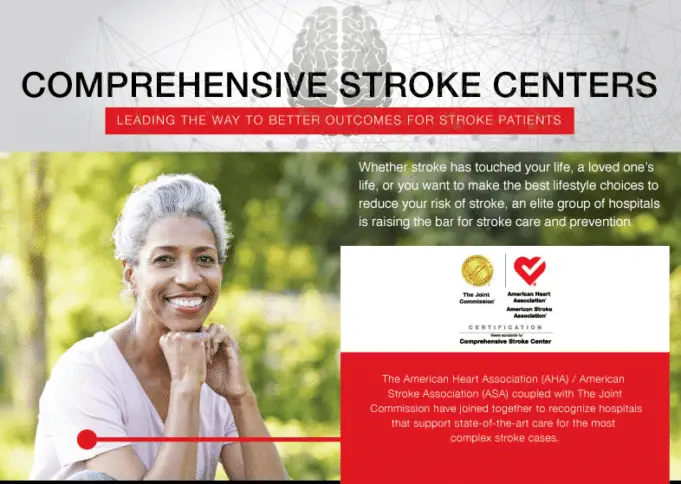You may have heard the commercial for a stroke center in your town – time saved is brain saved. In a true life threatening emergency, your best bet is going to be to get to the hospital closest to you. Don’t waste your time calling your friends for recommendations if you are having a stroke.
That said, there are factors that can lead you to more favorable outcomes should you ever have a stroke, and it’s certainly worthwhile to talk with your loved ones about which hospital you would want to be taken to in such an event.
Every hospital is not the best hospital for every single thing, and the closest hospital to you may not be the best place for you to go for a particular problem. If you or a loved one are at risk for certain medical conditions, making a plan ahead of time for where to go in the event of an emergency could very likely save your life. Conditions and lifestyle factors that can lead to an increased risk of stroke include:
- High blood pressure
- High cholesterol
- Obesity
- Smoking
- Narrowed arteries
- Diabetes
- Poor diet
- Heavy drinking
- Lack of exercise
- Family history of stroke
If you are having a stroke, your best chance of survival comes from a comprehensive stroke center. In fact, people who suffered brain bleeds during a stroke were 7% more likely to survive if they went to a hospital that was a comprehensive stroke center.
CSCs also:
- Educate the community about the warning signs of stroke and what to do
- Give patients access to clinical trials
- Lead the way for research
- Give patients the best possible outcome in the most severe cases
Doctors and nurses at comprehensive stroke centers can answer all of your questions along the way and provide you with the highest level of care. These are places that have specialized equipment for diagnostics and monitoring and whose staff are well versed in all aspects of stroke care.
hey involve patients and families in decision making as often as possible, individualize care to meet unique needs and challenges, and utilize the latest and most effective treatment techniques. What’s more, they have taken the extra step to become certified so that patients can know where to go and that they are in good hands.
If you have risk factors that could lead to stroke, it’s important to do your research ahead of time. Talk to your doctor about the best facilities to care for you in the event of a stroke. This is not a decision you want to leave until they are loading you in the ambulance. Having a plan in place can prevent much of the stress associated with a medical emergency and it can even save your life.
Nobody wants to think about the worst case scenario, but a little planning ahead can make a major difference should the worst happen. Learn more about comprehensive stroke centers from this infographic from The American Heart Association and The Joint Commission!













